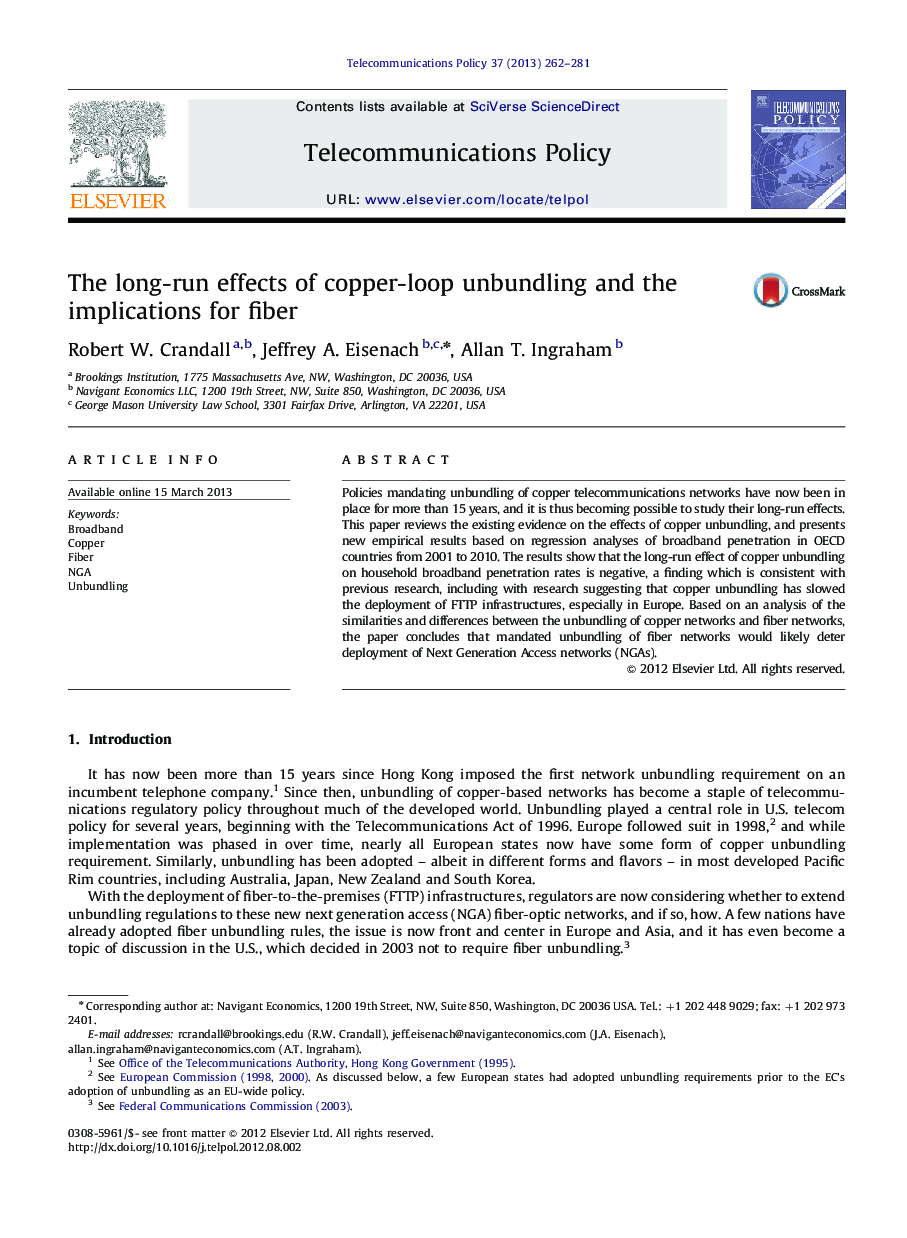| Article ID | Journal | Published Year | Pages | File Type |
|---|---|---|---|---|
| 556832 | Telecommunications Policy | 2013 | 20 Pages |
Policies mandating unbundling of copper telecommunications networks have now been in place for more than 15 years, and it is thus becoming possible to study their long-run effects. This paper reviews the existing evidence on the effects of copper unbundling, and presents new empirical results based on regression analyses of broadband penetration in OECD countries from 2001 to 2010. The results show that the long-run effect of copper unbundling on household broadband penetration rates is negative, a finding which is consistent with previous research, including with research suggesting that copper unbundling has slowed the deployment of FTTP infrastructures, especially in Europe. Based on an analysis of the similarities and differences between the unbundling of copper networks and fiber networks, the paper concludes that mandated unbundling of fiber networks would likely deter deployment of Next Generation Access networks (NGAs).
► Assesses the long-run impact of copper-loop unbundling on broadband penetration and fiber deployment. ► Reports on regression analyses of broadband penetration using 2001–2010 OECD panel data. ► Reviews current unbundling policies and results in industrialized countries. ► Concludes unbundling has reduced broadband penetration and likely slowed fiber deployment. ► Explains why unbundling FTTP is problematic and likely would further slow NGA deployment.
